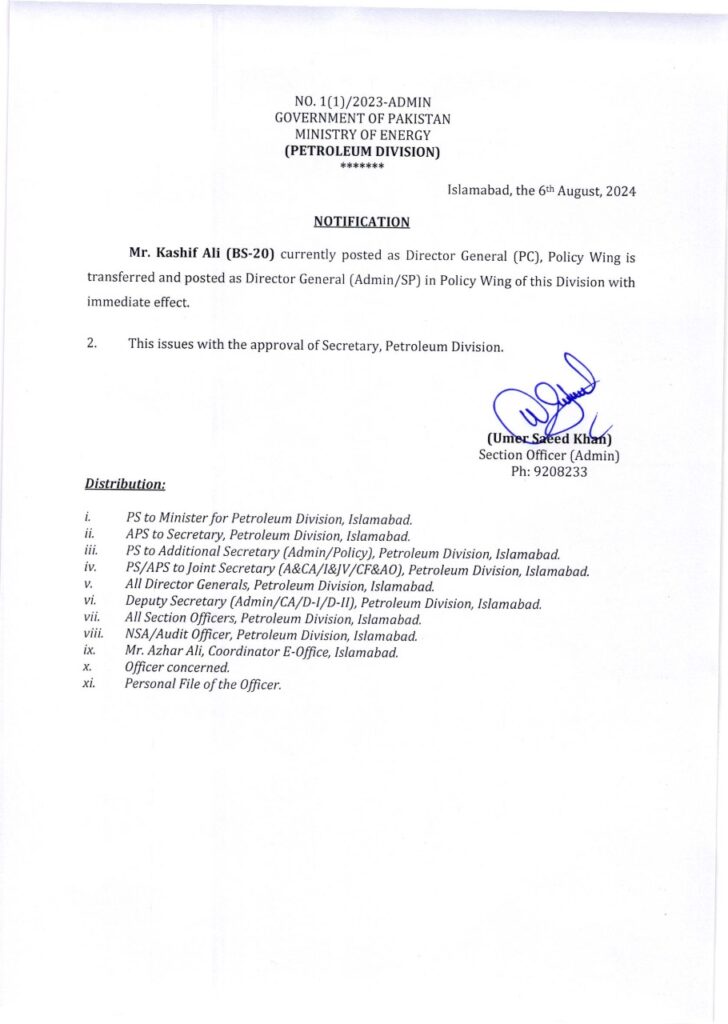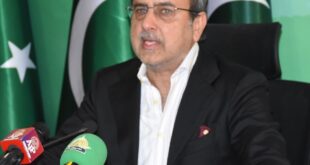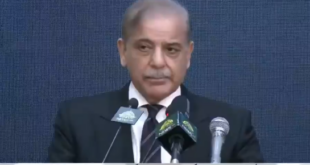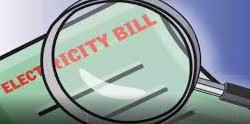Secretary Petroleum next in the line of fire

The Director General Petroleum Concession (DGPC) has become the first casualty of the controversial framework for the allocation of gas to third parties. The petroleum minister successfully removed the DGPC from his post on Tuesday amid controversy surrounding the implementation of the third-party gas allocation policy.
Sources indicated that the petroleum minister had sent a draft framework for implementing the third-party allocation to the Executive Committee of the National Economic Council (ECNEC). Both the secretary of petroleum and the DGPC opposed the draft framework, arguing that it contradicted the spirit of the amendment to the petroleum policy approved by the Council of Common Interest (CCI) during the caretaker government. This opposition ultimately led to the removal of the DGPC, with the current charge being given to Director Riaz Ali.

Additionally, a controversy is reportedly ongoing between Secretary Petroleum Momin Agha and Petroleum Minister Musadik Malik. The minister is said to prefer former Secretary Petroleum Capt Mahmood, who was recently reassigned from the IT Ministry. The petroleum minister is reportedly lobbying to remove the existing secretary and reinstate Capt Mahmood to the petroleum division.
The petroleum industry has voiced concerns that the Petroleum Division’s proposed framework for gas allocation to third parties threatens a significant $5 billion investment in oil and gas exploration. Exploration companies recently met with Prime Minister Shahbaz Sharif, pledging this investment contingent on the amendment of the petroleum policy to allocate 35 percent of gas to third parties. The caretaker government approved this amendment, increasing the third-party gas allocation share from 10 to 35 percent.
However, the Petroleum Division’s newly prepared framework for ECNEC approval includes terms that could jeopardize this substantial investment from both national and international players in the Exploration and Production (E&P) sector. Industry sources noted that over seven months have passed since the CCI approved amendments to the Petroleum (Exploration and Production) Policy 2012. Despite this, the Petroleum Division’s framework allegedly diverges from the CCI’s decision, risking the $5 billion investment.
On January 26, 2024, the CCI approved a summary submitted by the Petroleum Division to amend the Petroleum (Exploration and Production) Policy 2012. The approved amendments allow E&P companies to sell up to 35% of their pipeline specification gas to third parties without government approval, provided the sale is competitive and prices are not lower than wellhead gas prices under the 2012 policy. This provision applies to all existing licenses and leases granted under the Petroleum (E&P) Rules from 1986 to 2013 for unallocated gas discoveries made after the CCI approval.
The proposed framework allegedly deviates from the CCI’s decision. Key elements include a phased implementation of the 35% third-party gas sales over several years: up to 15% in FY 2024-25, 20% in FY 2025-26, 25% in FY 2026-27, and reaching 35% by FY 2030-31. The amendment does not apply to Extended Well Tests (EWT), appraisal, development wells, and up-dip or down-dip potential wells production.
According to the framework, a benchmark for each E&P company will be formulated, above which the 35% will apply. The framework also requires producers to inform the Petroleum Division of their intention to sell a portion of their gas to third parties for review against benchmarks before initiating the sale.
 BeNewz
BeNewz




